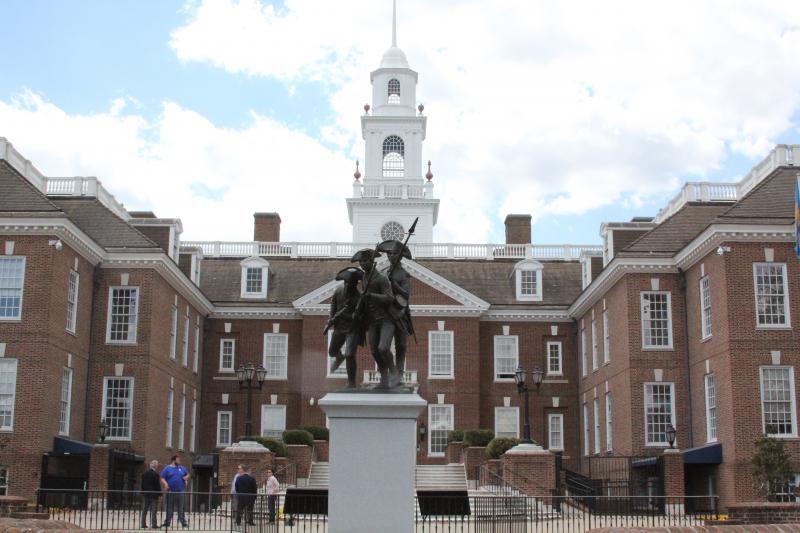Officials from Kent and Sussex counties testified Oct. 7 at the second hearing on property reassessments that their initial property assessments were sent out to residents in the month of November before the bills were issued. They also testified that the cost of the next assessment is going up.
County Administrator Todd Lawson said Sussex signed a contract with Tyler Technologies in 2021 to assess 203,000 property parcels, which is more than Kent and New Castle counties.
“By November 2024, our tentative value mailers were sent,” he said. “Ours were mailed because that’s what the contract said.”
Kent County, which began its reassessments in 2023, also mailed initial property assessments out in November.
During the first property assessment hearing, some legislators questioned New Castle County’s timing of sending out initial property valuations after the November general election. Gov. Matt Meyer was county executive at the time property valuations were sent to residents.
In other testimony, Sussex County Finance Director Gina Jennings said the cost to reassess properties is set to increase about 60% when the reassessment process is held five years from now.
She said the county paid about $40 per parcel this time around, and it will increase to $65 next time.
“There’s a lot of growth in Sussex, so I was well aware of that cost per parcel because every time we added one, we had another cost,” she said. “We only bring in $19 million in taxes, and we’re talking about a $15 million cost. So I’m trying to figure out how to make this work.”
Tyler Technologies was the lowest bidder for the property reassessment project, ordered by a Chancery Court judge who ruled in favor of a lawsuit that had been filed by the NAACP and another New Castle group over poor test scores of low-income students upstate. The lawsuit argued for property reassessments in order to improve education.
Under the recent reassessment that increased tax bills for many property owners across the state, Sen. Russ Huxtable, D-Lewes, asked if any property owners questioned their property valuations being too low.
The Kent County property assessment director said they did get a few.
“One woman was worried that the value placed on her property under mass appraisal was going to impact what she could sell it for,” said Cheryl Bundek, adding the woman thought her home assessed at $500,000 would not be able to sell if she put it on the market for $700,000. “About half-hour into the conversation I said, ‘Well you know, last year we had you at $60,000, so would you have taken $60,000?’ She said, ‘Never mind,’ and hung up the phone. There have been a few, but that was their reasoning, that it would affect their sales price.”
Rep. Claire Snyder-Hall, D-Rehoboth Beach, asked about leaving the appeals process open until after tax bills are issued “so that residents can respond to the actual impact, rather than just value changes,” she said. “On the one hand, you want to get everything solidified before tax bills go out, but on the other hand, it’s when someone actually gets the bill they have the moment of, ‘Oh, that’s not right.’”
Ron Rakow, an expert with Lincoln Institute of Land Policy, said it’s best to resolve issues before a tax rate is set.
“When you do something after the tax rate is set, now you’re talking about abatements and revenue the community was counting on … Ideally you want to push the process forward,” he said.
Moving forward, Kent and Sussex officials said they’re confident about handling future assessments.
“Our data needs to get better, and it will get better, but we have the tools,” Jennings said. “I never did it before, but we got through it, and I now feel I can handle next time.”
Melissa Steele is a staff writer covering the state Legislature, government and police. Her newspaper career spans more than 30 years and includes working for the Delaware State News, Burlington County Times, The News Journal, Dover Post and Milford Beacon before coming to the Cape Gazette in 2012. Her work has received numerous awards, most notably a Pulitzer Prize-adjudicated investigative piece, and a runner-up for the MDDC James S. Keat Freedom of Information Award.






















































